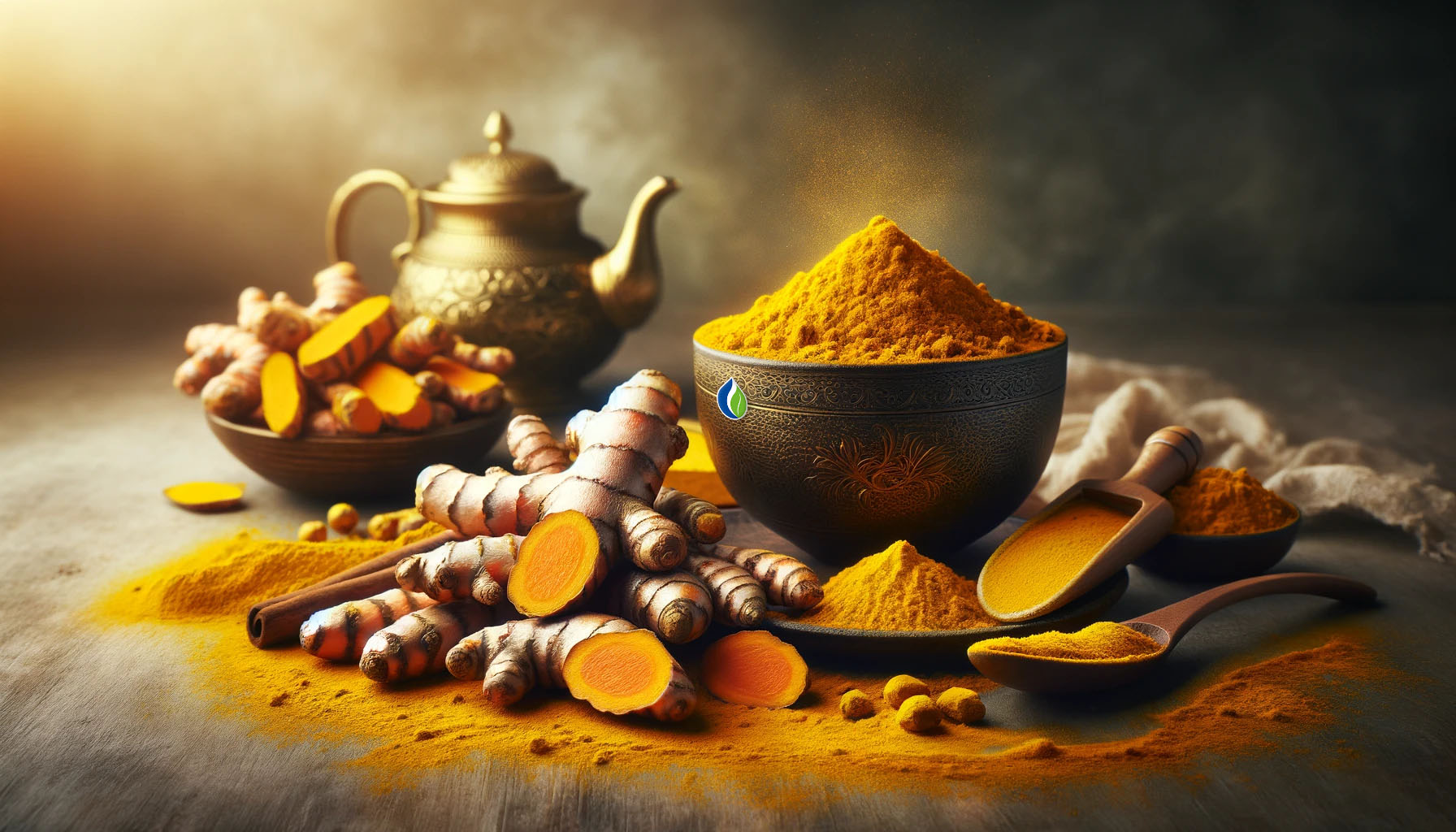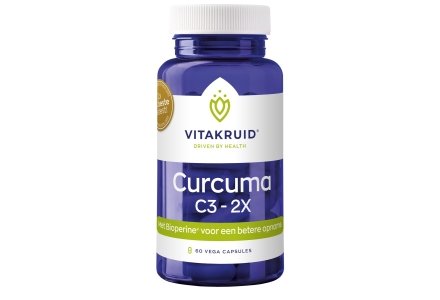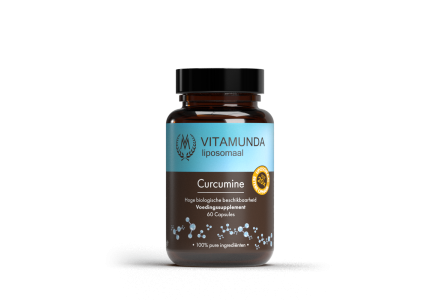
In the world of health and wellness, there is always room for new discoveries and trends. One of the prominent stars in the health firmament in recent years is turmeric, a spice often associated with Indian cuisine that turns out to offer a wealth of health benefits. In this comprehensive blog, we will delve deeper into what turmeric is, its active component (curcumin), and how it can contribute to a healthier life. We will also discuss the use of turmeric in the kitchen, provide tips for optimal absorption, potential side effects, and precautions. Additionally, we will answer some frequently asked questions about turmeric. Let's get started!
What is Turmeric?
Turmeric, also known as yellow root, is an herbaceous plant that belongs to the ginger family. The scientific name of turmeric is Curcuma longa. It is native to South Asia, with India being one of the largest producers in the world. The most striking feature of turmeric is the bright yellow color of its rhizome, which has been used for centuries as a dye, spice, and medicinal plant.
The Active Component: Curcumin
The secret behind the health benefits of turmeric lies in a bioactive compound called curcumin. Curcumin is a polyphenol, a type of antioxidant found in many plants. What makes curcumin so special is its strong anti-inflammatory and antioxidant properties. It is this compound that is responsible for the characteristic yellow color of turmeric.
Health Benefits of Turmeric
Turmeric has been used for centuries in traditional medicine for its purported medicinal properties. Modern science has confirmed many of these claims and has shown that turmeric offers numerous health benefits.
Turmeric and Anti-Inflammatory Properties
One of the most remarkable properties of curcumin is its ability to reduce inflammation in the body. Chronic inflammation is often seen as the root cause of many diseases, including heart disease, diabetes, arthritis, and even some forms of cancer. Curcumin inhibits certain molecules and enzymes involved in the inflammatory process, making it a potent anti-inflammatory without the side effects of many medications.
Turmeric in the Kitchen: More Than Just Flavor
Turmeric is not only beloved for its flavor, which adds a slight bitterness and an earthy, warm touch to dishes, but also for its potential health benefits. It is often used in curries, stews, soups, and sauces. An easy way to incorporate turmeric into your diet is by adding a bit to rice, vegetables, or a smoothie.
Tips for Optimal Turmeric Absorption
While turmeric holds promise in terms of health benefits, it's important to note that curcumin is not easily absorbed by the body. To harness the optimal benefits of turmeric, here are some tips for proper absorption:
Combine with black pepper: Black pepper contains a compound called piperine, which significantly enhances the absorption of curcumin. Add a pinch of black pepper to dishes containing turmeric for a synergistic effect.
Add healthy fats: Curcumin is fat-soluble, so combining turmeric with healthy fats like olive oil, coconut oil, or avocado can improve absorption.
Cook turmeric: Heating turmeric briefly in oil increases its bioavailability. This can be convenient when making curries or sauces.
Choose supplements with bioperine: If you prefer to use turmeric in supplement form, look for products containing bioperine, a patented extract from black pepper that enhances curcumin absorption.
Possible Side Effects and Precautions
While turmeric is generally considered safe when consumed in normal amounts, there are some precautions and potential side effects to be aware of:
Stomach issues: In some cases, the use of turmeric may cause stomach discomfort, especially at high doses. If you are sensitive to this, limit your intake.
Blood-thinning properties: Turmeric can act as a natural blood thinner. If you are already using blood-thinning medications, consult your doctor before taking turmeric supplements to avoid potential interactions.
Allergic reactions: Although rare, some people may experience allergic reactions when in contact with turmeric. Be vigilant for skin rashes, itching, or respiratory problems.
FAQ
What Makes Turmeric So Healthy?
Turmeric is healthy due to the presence of curcumin, a powerful antioxidant and anti-inflammatory compound. It can help combat inflammatory diseases, improve digestion, support liver function, and even reduce the risk of certain types of cancer.
How Much Turmeric Should I Consume Daily to Experience Health Benefits?
There is no specific recommended daily amount for turmeric. It depends on the individual and health goals. Generally, it is recommended to consume about 1 to 3 grams of turmeric daily, which is roughly equivalent to half to one teaspoon.
Can I Take Turmeric If I'm on Certain Medications?
If you are taking certain medications, especially blood thinners, consult your doctor before taking turmeric supplements. Turmeric can interact with medications and cause unwanted side effects.
Meditech Europe Supports
At Meditech Europe, we understand the value of turmeric and its health benefits. We offer high-quality turmeric supplements formulated to promote optimal absorption of curcumin. Our expert team is ready to answer all your questions and provide personalized advice.
Feel free to contact us at info@meditecheurope.nl or call us at +31527 292 331. We are here to help you on your journey to a healthier and happier life with the help of turmeric, the golden spice with powerful health benefits.






